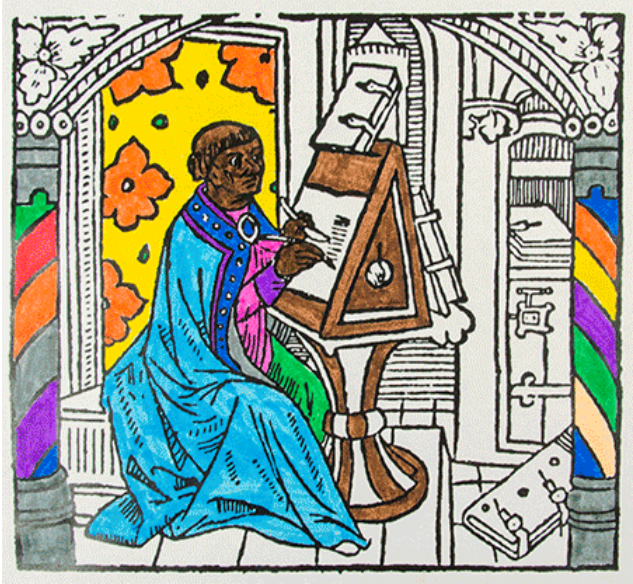Use Your Time in Isolation to Learn Everything You’ve Always Wanted To: Free Online Courses, Audio Books, eBooks, Movies, Coloring Books & More

"I have never let my schooling interfere with my education." Mark Twain may or may not have actually said that, but either way the sentiment resonates — and with a new strength now, since schools have closed all over the world in an attempt to halt the spread of the pandemic coronavirus. For many, this period of isolation (self-imposed or otherwise) represents an opportunity to rediscover the value of education: not the kind directed by an institution, but the much more valuable kind that runs on one's own steam. If you count among that select group of self-educators (or educators of children whom you can no longer send to school), we here at Open Culture have spent nearly the past decade and a half amassing just the resources you need.
At our selection of more than 1,500 free online courses, you can take deep dives into subjects from archaeology and architecture to law and literature to physics and psychology. (We've even got courses specifically designed to help you understand the coronavirus itself.) If you've been meaning to catch up on the work of the aforementioned Twain — or that of Dostoevsky, Wittgenstein, Kafka, and Proust, among others — he appears in our roundup of more than 800 free eBooks.
Should you prefer reading through earphones while exercising or cleaning — especially important activities these days — we can also offer you more than a thousand free audiobooks, whether you prefer Isaac Asimov or Jane Austen, Adrienne Rich or Charles Bukowski. (You can also get audiobooks from Audible if you sign up for a free 30-day trial there.)
While quarantine puts a temporary stop to many of our usual activities, it shouldn't get in the way of movie night. Our collection of 1,1500 free movies will cover all your movie nights through the time of the coronavirus and then some, including as it does classic films noirs, thriller and horror pictures (including some by no less a suspense master than Alfred Hitchcock), documentaries, and even the fruits of the film industries of countries like Russia and South Korea. And though we can't get enough cinema here at Open Culture, it's hardly the only visual art form we feature: you might spend some time, for instance, with this collection of two million images from 30 world-class museums. This range of art also appears in free museum-produced coloring books geared to all ages.
If you'd like to use your time of "social distance" to develop skills other than coloring, we can point you toward resources for learning to cook, to draw (like an architect, like a Japanese mangaka, like Lynda Barry), to play the guitar, and to practice yoga. Bear in mind also the online-education offerings from Masterclass we've featured here on Open Culture, from "Margaret Atwood Teaches Creative Writing" to "David Sedaris Teaches Storytelling and Humor" to "Werner Herzog Teaches Filmmaking." Those aren't free, but everything else in this post is, including our collection of online language-learning resources. Having spread through world travel, the coronavirus will keep many wary of going abroad in the foreseeable future. But when the pandemic ends, you'll want to be prepared to enjoy foreign lands again. Italy, a country especially hard-hit by the virus, will surely welcome all the visitors it can get. Until then, why not get a grasp on its language — and its cuisine — with a course like MIT's "Learn Italian with Your Mouth Full"?
Related Content:
Free Courses on the Coronavirus: What You Need to Know About the Emerging Pandemic
Coursera Providing Free Access to Its Course Catalog to Universities Impacted by COVID-19
Why You Should Read The Plague, the Albert Camus Novel the Coronavirus Has Made a Bestseller Again
Quarantined Italians Send a Message to Themselves 10 Days Ago: What They Wish They Knew Then
Based in Seoul, Colin Marshall writes and broadcasts on cities, language, and culture. His projects include the book The Stateless City: a Walk through 21st-Century Los Angeles and the video series The City in Cinema. Follow him on Twitter at @colinmarshall or on Facebook.
Use Your Time in Isolation to Learn Everything You’ve Always Wanted To: Free Online Courses, Audio Books, eBooks, Movies, Coloring Books & More is a post from: Open Culture. Follow us on Facebook, Twitter, and Google Plus, or get our Daily Email. And don't miss our big collections of Free Online Courses, Free Online Movies, Free eBooks, Free Audio Books, Free Foreign Language Lessons, and MOOCs.
from Open Culture https://ift.tt/3aYeRUv
via Ilumina
Comments
Post a Comment